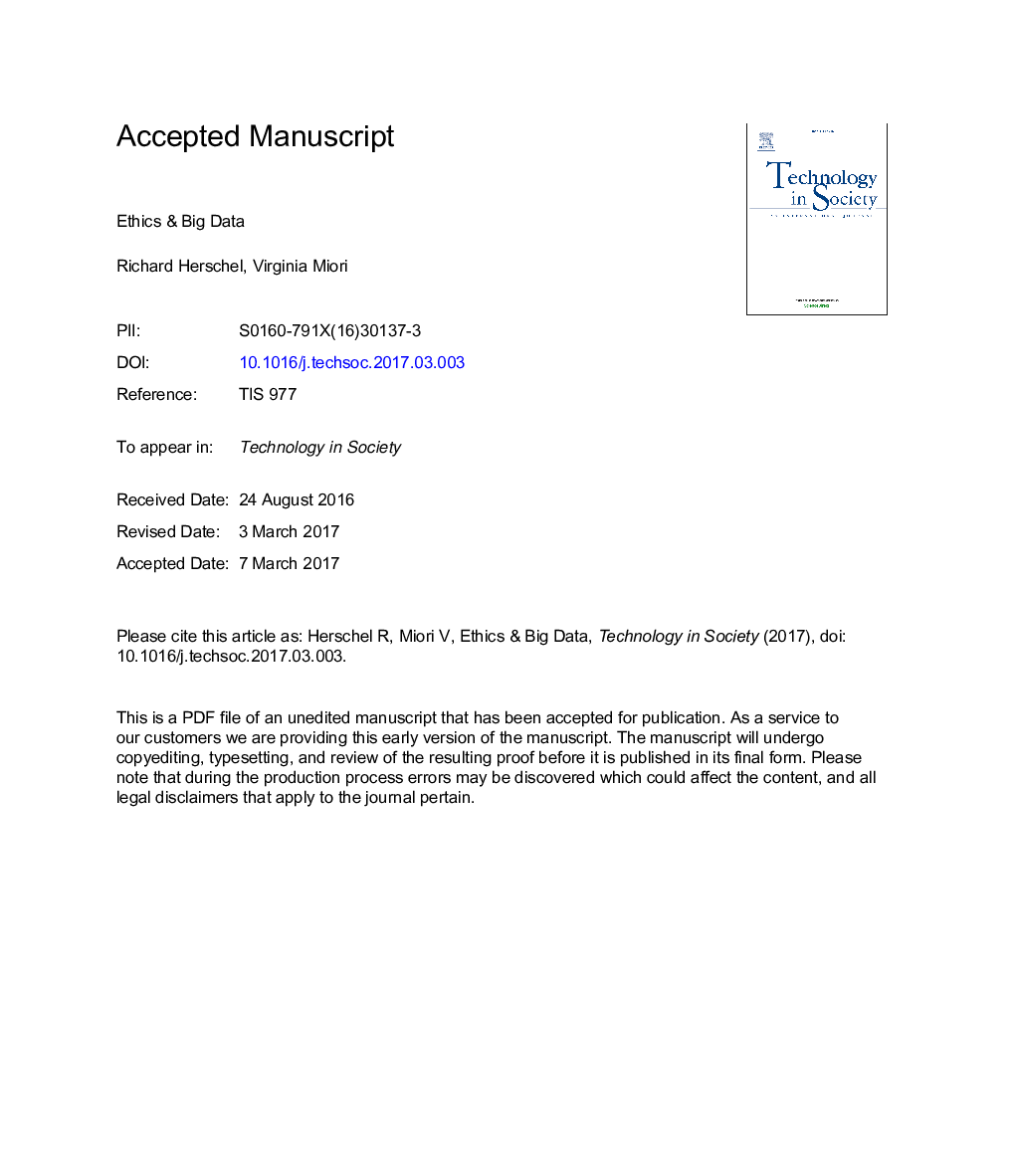| Article ID | Journal | Published Year | Pages | File Type |
|---|---|---|---|---|
| 4941789 | Technology in Society | 2017 | 14 Pages |
Abstract
Big Data is a digital phenomenon that enables the collection and use of massive amounts of data derived from both man and machine. This data is characterized in terms of its volume, variety, velocity, veracity, variability, and its complexity. While Big Data allows firms to rapidly capture, analyze, and exploit information, it can also enable access to data that compromises an individual's privacy. And this can happen either deliberately or inadvertently. Either way, Big Data fosters a discussion of ethical issues relative to the sharing and usage of data. Ethical debates are typically articulated within the context of ethical theories. These theories help to frame our understanding of moral issues. Their use affords insight into the context and the logic of the moral arguments being presented, thereby providing us with a rational mechanism by which to better evaluate whether an intended action or actual outcome is morally right or wrong. Four ethical theories are briefly reviewed in this paper: Kantianism, Utilitarianism, Social Contract Theory, and Virtue Theory. Each theory is than examined to show how it might be employed to examine Big Data issues.
Related Topics
Social Sciences and Humanities
Business, Management and Accounting
Business and International Management
Authors
Richard Herschel, Virginia M. Miori,
